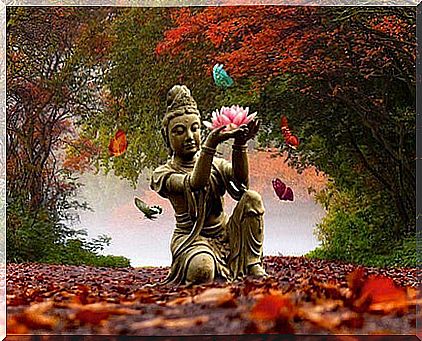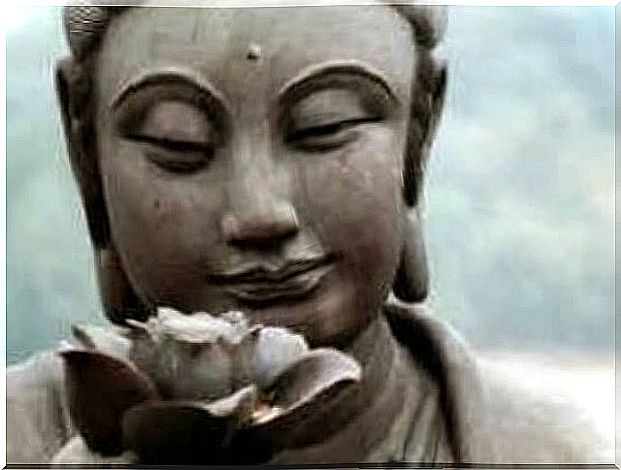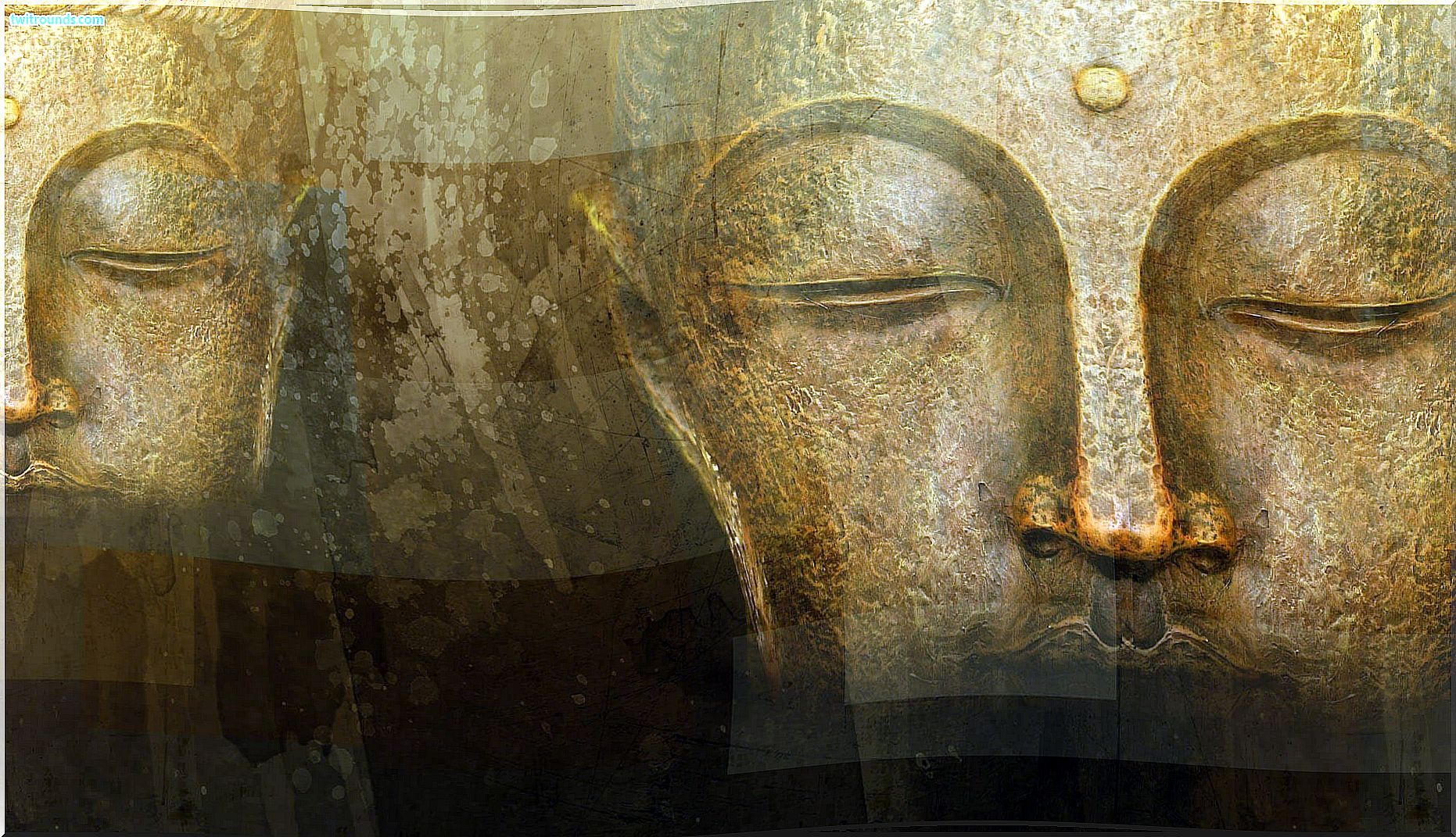4 Buddhist Strategies To Manage Stress
Buddhism is the knowledge of the spiritual. We could say that it is an interesting philosophy of life, capable of offering us an approach towards ourselves, to teach us great and adequate strategies for day to day.
It does not matter if you are a bit skeptical about these types of currents, it is not at all about having to assume concepts like reincarnation or those implicit karmic processes in this context.
The interesting thing about Buddhism is that it offers us a whole compendium of visions and strategies, including meditation, with which we can deal with complex aspects such as anxiety and stress.
Do you know how to get it? Have we perhaps already awakened your interest on the subject? So, don’t hesitate. Read the following tips and apply these interesting principles from now on.
1. You are responsible for yourself

Something so simple and elementary that, sometimes, we tend to overlook. Many of us hold others responsible for our problems: “If I suffer from stress it is because my boss has no mercy and demands too much of me, or because my partner is very selfish and always leaves me aside in his decisions.”
Are we perhaps puppets with strings that guide others? Absolutely. For Buddhism, the act of liberation depends on oneself. In this current there is no “savior” who comes to help us, but it is we who, with our inner strength, our decision and motivation, have to be able to face daily problems. Stand up to our own limitations.
Take responsibility, put on the armor of bravery and with determination, effort and discipline. Face your problems, always knowing that the most important person in your life is you.
2. The importance of the “here and now”

Sometimes we live our days remembering yesterday. Evoking what happened in the past and even what we did this morning. And even more, those memories are generally focused on mistakes made, on what we have lost, on the people who hurt us or even we tend to focus our attention on all those stressful elements, which generate even more anxiety.
“Today I did this wrong at work.” “Yesterday this person answered me wrong.” “I can not forget the betrayal of this person …”. These types of thoughts generate a constant malaise in which we find ourselves anchored, almost carried away in a tide of endless suffering.
What is the use of focusing on the past, on what is no longer there? Your opportunity is in the present, in the “here and now.” At this very moment you have the opportunity to change things to be happy. What are you waiting for?
3. The importance of non-attachment

Don’t fill your life with obsessive attachments. Don’t focus your goals on getting things done, on having a bigger house, on having a state-of-the-art mobile. Also, do not focus your happiness on what others do or do not do. From the moment you fix your existence to things or people, you are less free and you will be almost condemned to suffering.
Ideally, establish a healthy attachment. Love your partner, but also promote your freedom, your self-esteem, your personal growth. Do not allow excessive attachment to undermine your self-esteem, because all this in turn generates a high sense of stress.
The fear of disappointing others, of not reaching the expectations of what your family, your partner, or your friends expect … These are ideas that veto our freedoms, that put us in chains and not healthy attachments where we can be ourselves.
4. You will fall into the same mistakes until you can learn from them

This is an interesting idea from Buddhism that defines what karma is. This word has its origin in Sanskrit and means “action, doing or cause.” What does this idea teach us? That we ourselves, with our actions, thoughts and words are creating our existence, our true essence.
If our actions are not correct we will be creating negative “karma”. For Buddhism, everyone has the opportunity to amend those mistakes in new lives, until they properly address that problem, applying an appropriate action, that is, generating good karma .
Thus, we must bear in mind that the main mistake that people have is not seeing precisely that we are doing something wrong. If we do not see it, if we do not give it importance, we will stumble over and over again with the same stone. If you, for example, suffer from stress at the moment and you are not able to isolate the reasons that originate it and you take responsibility for facing the problem, it is usual that this situation worsens over time.
To do this, you have to stop to analyze your “here and now”, you will not see the problem, what you are doing wrong and, if you do not see it, you will repeat it over and over again. So, take a breath and stop for a moment.
What changes could you make to feel better? What if from now on we approach things differently? How about we prioritize ourselves more and generate positive “karma”? Do not hesitate, you are the engine of your life, you who must be the architect of your own well-being. Do it with optimism and energy. You deserve it!









